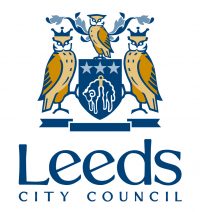This project seeks to evaluate the roll-out of the Family Valued model in five local authorities in England, as part of the Department for Education (DfE) funded Strengthening Families, Protecting Children (SFPC) programme. The local authorities analysed are Warwickshire, Newcastle, Coventry, Solihull and Sefton.
The evaluation of the roll-out includes an impact evaluation of the model, with a stepped wedge cluster Randomised Controlled Trial (RCT) design. This is accompanied by an implementation and process evaluation across the same five local authorities, to understand the delivery during the rollout of the model.
The Family Valued Model
Developed in Leeds, Family Valued is a model of system change where training in restorative practice is provided across children’s services and partner agencies, Family Group Conference (FGC) services are set up or capacity and function of existing services is expanded, and new restorative services are commissioned to address gaps in provision and act on the outcomes of FGCs.
The intervention supports a whole-scale shift to restorative practice, changing service-wide ways of working with children and families so that support is done ‘with’ them, not ‘to’ them. The programme involves:
- Introductory awareness raising, or deep dive training on restorative practice for all levels of staff in children’s services and their partner agencies working with children, families and communities (such as health and education), including training for leadership and management.Review and reform of systems and structures in children’s social care to ensure they optimise relationships with partners and restorative practice with families.
- Offer of Family Group Conferences (FGCs) to families, as an alternative to child protection conferences, to reduce entry to care and support reunification.
- Newly-commissioned restorative services to address gaps in provision and act on the outcomes of FGCs.
Impact Evaluation
The study design of the impact evaluation is a cross-sectional stepped-wedge cluster randomised controlled trial, where the timing of implementation is staggered across local authorities. The point at which local authorities begin implementing the intervention is selected at random, constrained by their level of readiness to implement the model. In this way, all the local authorities in the sample will eventually implement the Family Valued model, but randomising the start date of the implementation of Family Valued will allow service users in the local authorities that have not yet implemented the programme to act as a control group against service in local authorities where Family Valued has already been implemented. The primary evaluation question of the stepped wedge RCT relates to care status: What is the impact of Family Valued on the likelihood of children becoming looked after?
The primary evaluation question of the stepped wedge RCT relates to care status: What is the impact of Family Valued on the likelihood of children becoming looked after?
There are also six secondary questions, relating to changes in: i) the likelihood of children having their plan closed and then returning to statutory services, ii) the likelihood of children progressing to a CPP, iii) time spent on CPP or CIN plans, iv) the likelihood of children looked after entering kinship care, v) the likelihood of children looked after being reunited with their families, and vi) unauthorised school absence rates of children referred to children’s social care.
Given the challenges the COVID-19 pandemic poses to evaluating a stepped-wedge RCT, a difference-in-differences analysis will be conducted in addition to provide an additional approach to analysing the programmes’ effects and to increase the robustness of the impact evaluation estimates. The analytical approach for the difference-in-differences analysis is set out in a separate protocol at the end of the page.
Implementation and Process Evaluation
The purpose of the implementation and process evaluation is to assess delivery during the rollout of the Family Valued Model across five local authorities. The aim of this is to help understand and explain any identified intervention effects (or lack thereof) in the concurrent stepped-wedge cluster randomised controlled trial, to identify elements of successful delivery, and to improve the understanding of the model.
The implementation and process evaluation seeks to answer the following research questions:
- Fidelity and adaptation
- To what extent does delivery in participating authorities adhere to the model?
- Are the key assumptions and facilitating factors in place?
- Programme differentiation
- What does the existing service structure and practice look like in participating authorities prior to the introduction of the model?
- Reach and acceptability
- What is the number and characteristics of families reached by the intervention?
- What is the experience of staff and families who have been involved with the intervention?
- Mechanism
- Does implementing the model lead to perceived changes in the interim and ultimate outcomes identified in the logic model?
- Is the level of effectiveness of the model perceived to differ for different groups?
- Are there any perceived unintended or negative consequences as a result of introducing the intervention?
Timing
The first local authority is expected to begin implementing Family Valued in the Spring of 2020, with the other local authorities following in 6-month intervals. Final outcome data is planned to be collected in October 2025, with final reporting expected in early 2026.
We anticipate that due to the COVID-19 pandemic that it is likely there will be delays to these timings.
Update
The COVID-19 pandemic, along with associated changes to programme delivery, are likely to undermine our original stepped wedge design. As such, we are adding a supplementary matched difference-in-differences (DiD) analysis to the current research design. The changes to programme delivery have also delayed some of the data collection for our implementation and process evaluation, but this eventuality was already accounted for in our original trial protocols so no significant changes will be required.
Relevant Documents
-
read more about Family Valued Model Pilot
Project
Family Valued Model Pilot
Pilot Evaluation of the Family Valued Model in Darlington as part of the Department for Education’s Strengthening Families, Protecting Children (SFPC) programme.

